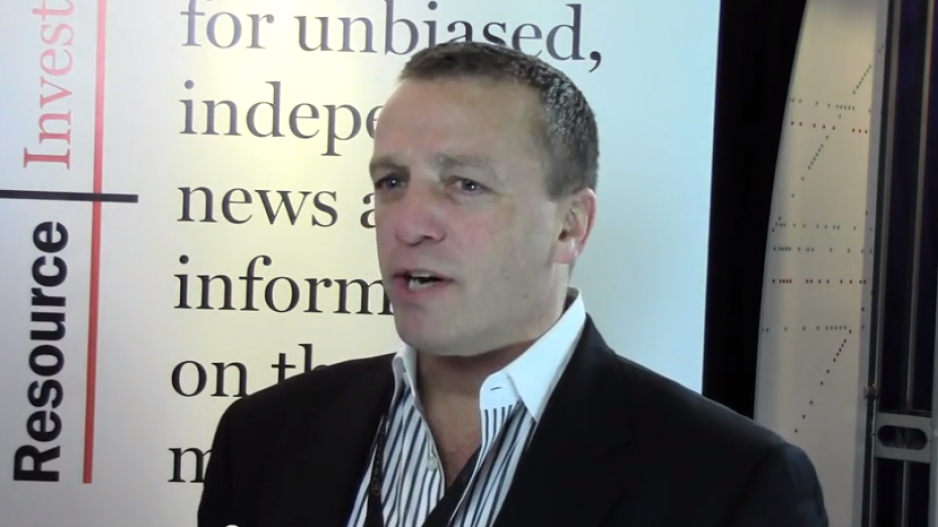When the CEO of a publicly traded company starts dumping his own stock, sensible investors view it for what it is – a red flag – which is why there are rules requiring insider trading disclosure.
But anyone who invested in Silver Sun Resource Corp. (which became Golden Sun Mining Corp.) would have had no idea that its CEO, Mark Aaron McLeary, was unloading his own company’s stock and loading up on stock in another of his companies, Chlormet Technologies (CSE:PUF), which recently moved into the medical marijuana space.
That’s because McLeary was using an offshore holding company based in Panama to conduct insider trades without disclosing them, according to a BC Securities Commission (BCSC) notice of hearing, issued in December, started in January and set to continue in June.
The most recent allegations against McLeary have not been proven in court.
Even while the North Vancouver businessman was under BCSC investigation for market manipulation involving Sungro Minerals Inc. (OTCBB:SUGO), he was using Pecado Capital S.A. in Panama – a holding company he controlled – to buy and sell stock in his own B.C.-headquartered companies off the books, the BCSC said.
By failing to disclose insider trades in his two companies, McLeary was able to sell his position in one company with dwindling prospects (Silver Sun/Golden Sun) and buy stock in another – Chlormet – without disclosing it to the investing public.
“It was wrong because it was a way to hide his trading that he was otherwise legally required to report,” said Lang Evans, manager of BCSC’s special investigations unit.
“It denies [shareholders] the disclosure in the marketplace that they’re entitled to under the Securities Act.”
Reached by phone, McLeary declined to respond to the BCSC’s allegations against him.
In January, the BCSC found McLeary had engaged in market manipulation related to Sungro Minerals in 2009.
Despite having no business and just $299 in assets, Sungro’s share price jumped to $4.75 from $0.45, according to the BCSC. McLeary was found to have engaged in market manipulation, along with several others. Penalties have yet to be levied in that case.
McLeary is also now facing a whole new round of BCSC hearings over his concealed insider trades in Chlormet and Silver Sun/Golden Sun.
McLeary was the president of Silver Sun, which changed its name to Golden Sun Mining in January 2013, and traded on the TSX Venture Exchange.
Golden Sun has since been consigned to the NEX – the lowest tier of the exchange, where dormant or defunct companies are placed when they fail to meet continued listing requirements.
McLeary was also the CEO of Chlormet and its predecessor companies.
In January 2011, he became the new CEO of New High Ridge Resources (TSX-V:HRR), which changed its name to Newton Gold Corp. in February 2011 and again changed its name to Chlormet in November 2012. At the time, McLeary was also president of McLeary Capital Management Inc.
While McLeary did disclose the trades he made in Canada in Silver Sun/Golden Sun and Chlormet, he disclosed none of the trades he made through Pecado, until the BCSC asked him about it.
He filed his insider trading reports made through Pecado only last year, after being confronted with the omission and having trading in his companies halted.
According to System for Electronic Disclosure by Insiders (SEDI) insider trading reports, while he was CEO of Silver Sun, McLeary – through Pecado Capital – bought $466,666 worth of Silver Sun shares on May 13, 2011, through a private placement – 1,666,666 shares at $0.28 per share. Shares were trading publicly at $0.46 per share.
The same day, he sold 50,000 shares at $0.44 per share ($22,000).
In total, between 2011 and 2013, through Pecado, McLeary acquired a total of 1,733,666 Silver Sun/Golden Sun shares and sold 1,731,666, as prices rose, at per-share prices ranging from $0.41 to $0.60. McLeary sold $846,476 worth of shares in Silver Sun/Golden Sun, netting $353,601.
All the while, he was promoting Silver Sun’s Cherry Hill gold mine in northern California.
McLeary’s insider trading was not the only thing that had not been properly disclosed.
In October 2011, the company announced its Cherry Hill mine in northern California had gone into production. McLeary also told Investing News Network in 2013 that Silver Sun’s Cherry Hill had an operating mine.
But, according to the BCSC, it had never gone into commercial production – a fact the company was forced to acknowledge in an October 29, 2013, press release following a cease-trade order in September 2013.
Also on October 29, 2013, Golden Sun was forced to retract claims made in a corporate fact sheet on estimated resources for its Cherry Hill gold mine.
The company had disclosed historical rather than current resource estimates – which it did not have – and failed to report them as such. It was the last news release the company issued.
As for Chlormet, through Pecado, McLeary bought 3,449,500 Chlormet shares between 2011 and 2013, at prices ranging from $0.01 to $0.21 per share, according to SEDI filings.
McLeary ceased being an insider of Chlormet at the end of February 2014, when he stepped down as CEO. However, he appears to still work for the company through the Foremost Group of companies.
According to Chlormet’s recent financials, the company has a management contract with Foremost Management Services, which McLeary co-owns.
In March 2014, Chlormet announced plans to move out of mineral exploration and into medical marijuana.
According to annual financial statements, Chlormet has an accumulated deficit of $12.6 million and posted a $1 million loss in 2014.
Update:
On July 13, 2015, a BCSC panel fined McLeary, Robert Hainey, and Jerry Williams for market manipulation in the Sungro case and permanently banned them from securities trading in B.C.
McLeary was fined $91,308 for misconduct and was ordered to pay an administrative penalty of $800,000. Hainey and Williams were also ordered to pay administrative penalties of $700,000.




